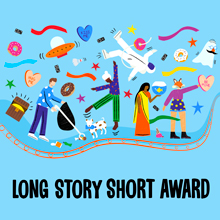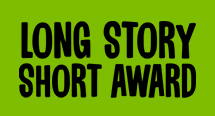My hands shake, indenting the lip of the ceramic cup I'm molding. I swivel and look at the other android artisans on the factory floor, robotic hands ablur ensuring each cup is perfect—and they ... [+]
If you're attractive, the type to solicit strangers, or just plain lucky, someone will explain the rest to you. Otherwise, you'll piece it together from your mailbox's contents: lost emails, cut-off dialogues, typed-and-deleted texts, all meticulously transcribed and timestamped. Each casts you in a speaking role; you realize all of these are communications that you carried out while you were alive. All of the conversations are unfinished, ending with a name cue and a blank space anticipating a line that never came. Your mailbox is narrow and dark and deep; as soon as you remove something, a coiled spring on the other end shovels the next piece of content forward like a vending machine. You select the most innocuous conversation in your pile and set off on your own. It's an email to a former employer, some sort of documentation request that got lost in your Drafts folder. Everyone has a method to their madness; you, being new, wander around aimlessly, tugging at the sleeves of randoms and calling out names until your paths intersect. Surprisingly, they've been looking for you, too. You compare identical transcripts. It's your turn to speak what needed to be said, and you do so: "Please see the attached document," and a brief description – your memory is suddenly so clear – of what you remember the contents entailing. Your words appear on both sets of pages as you deliver your line. Once finished, they fold in on themselves and disappear.
You'll see that employer again several more times throughout your journey: for more emails, obsolete project discussions, the raise you never plucked up the courage to ask for. If only the mailbox could dispense its contents sorted by subject, you could take care of each person in one appointment. Or, if they were sorted by date, you could ground yourself in some sort of chronology, like re-living the movie of your life. Instead, what you receive are scattered data points. In one moment, you're re-living your teenage years; in the next, your deathbed. You've become unmoored from time.
You'll find closure exists in three phases. The first is being found by those who have been waiting for you. It usually involves those who left your life before you were ready to leave theirs, whether through death or other divides. It's gratifying and a bit ghoulish to be so anticipated, though you're a bit miffed some of these people couldn't have put in more of an effort while you were both in one another's lives. It's here you find your mentors, ex-lovers who got over you first, your parents - who, one way or another, tend to intersect your path the most. With each exchange, you wonder if that's the last bit of unfinished business between the two of you, and an intoxicating blend – hope, envy, anticipation, mystery, loss – mixed to different ratios permeates each interaction. There's seemingly little else to do, so you automate for a while, become machine, searching and finding and reconciling and returning to your mailbox for the next assignment, a bounty hunter of your own past.
This whole process would be easier if you had some sense of the end. As the mailbox runs over, you're staggered by the extent of the unsaid in your life. You blush as the mailbox recalls private pillow conversations. You groan inwardly when it spits out a passing interaction with a stranger and you have to chase them down just to deliver a passing compliment or insult you thought nothing of when you passed them on the street the first time. You weep when it demands closure for a conversation that should've never been initiated in the first place, dropping you back in the clutches of those you never wanted to see again. Your psyche is a patchwork of wounds in various stages of healing: scarred over, mending, freshly opened.
The second phase comes on subtly, an introduction of friction that gradually deaccelerates and grinds you to a halt. You realize the reason this whole process is steeped in such tedium is because it's not enough to find someone – they have to be searching for you as well, and for the exact same conversation. What you mistook as coincidence was actually an unlisted rule of the game. The unfinished conversation in your pocket might be a hundred entries deep in your correspondent's mailbox, and vice versa. Some try to circumvent this by withdrawing dozens of conversations at a time, hopelessly overladen and fumbling. Others, puritans to the end, insist on carrying only one at a time, much to the frustration of everyone in their former lives. Those who were brilliant insist that there must be a more efficient way to do this; they can be seen not working on their conversations at all, but deep in new dialogues with one another in pseudo-intellectual huddles. The rest just want to get on with it. You flirt with these groups and others until you realize that, similar to when you were alive, most of death is defined by learning the same things about yourself as everyone else.
In cyclic fashion, the third phase puts you where others were in your life: searching for those you've been waiting for. You find your spouse and profess all the things – good, bad, ugly, beautiful – you should have expressed during your union. Your children, standoffish at first, warm up to you as you reconcile your absences. Love transmutes and matures into pure truth, the kind unappreciated by the living. These encounters range from clinically detached – the air of a delivery person obtaining a signature – to intimately therapeutic. You chuckle whenever you encounter someone younger than you – relatively speaking – and recognize an echo of yourself in them.
Over time, the faces grow increasingly unfamiliar. The people you saw earliest have left and their mailboxes reassigned. Your perspective returns to resemble something like when you first arrived in the hall; you carefully read over everything your mailbox divulges and cherish the conversations that follow. Perhaps those puritans you dismissed earlier in favor of efficiency were onto something after all.
There comes a time when you reach into the mailbox, withdraw a conversation, and your fingers encounter the end of the spring. You peer into the emptied shaft, hoping after all this time to catch a glimpse of what lies behind, but it's still too dark to make out anything. Shaking hands unfold the paper. The top reads: YOU. The timestamp reads: NOW. The blank infinity invites a monologue. Or does it?
You find a quiet spot – no small task in and of itself – and turn your gaze inward. All those who have intersected your life, no matter how significantly or trivially, have emptied their mailboxes, said all that they had once left unsaid. It is time for you to do the same. The words come naturally in a great flow. Amidst strangers, in a cross between a public library and a mailroom, the final piece of paper disappears, followed by you.



